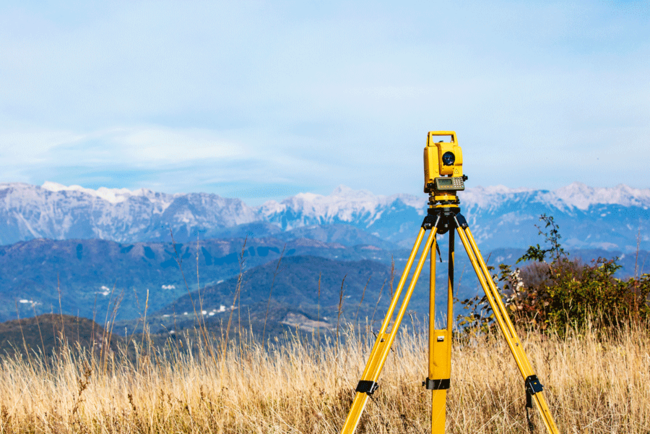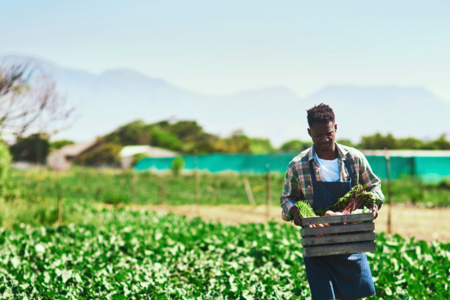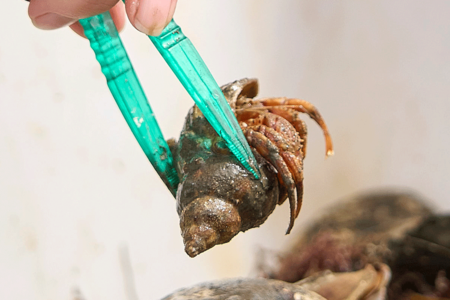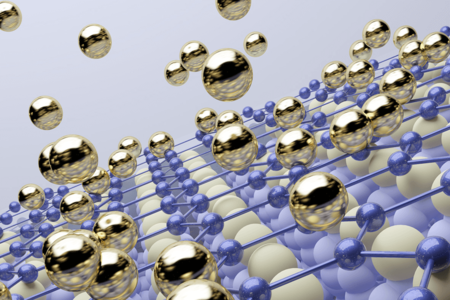About the programme
Geology is the science of the origins, composition, and evolution of the Earth over 5 billion years, and the processes that change the Earth and form the foundation for our existence.
Geology-Geoscience is a research- and field-based MSc programme concerned with geological materials, processes, and structures, as well as the study of Earth's history and of life on Earth.
The programme is offered in English.
Considering studying at UCPH this September?
Apply by 15 January if you are an applicant from outside the EU/EEA/Switzerland. Apply by 1 March if you are from the EUAdmission and application
To apply for admission to this master's degree programme, you must have completed a qualifying bachelor’s degree or a similar Danish or international degree programme which is assessed to be relevant. Apply for admission via the application portal.
Below, you can read more about admission requirements and which documents to upload in the application portal.
Academic admission requirements
Here you'll find the different academic requirements depending on which qualifying degree you hold.
With a Bachelor's degree in
- Geology-Geoscience from University of Copenhagen
you are granted legal right of admission and guaranteed a place on the Master’s programme in Geology-Geoscience if you apply in time to begin within 3 years of the completion of your Bachelor’s degree.
You meet all academic requirements if you hold one of the degrees listed below. Learn about when and how to apply. Note, however, that you still need to document that you meet the programme's language requirements.
- Geology-Geoscience from University of Copenhagen (note, that if you apply in time to begin within 3 years of the completion of your Bachelor’s degree, you have legal right of admission to the Master's programme)
If you have a Bachelor’s degree other than those listed above, you must submit additional documentation along with your application so we can evaluate whether or not you meet the admission requirements. Learn about when and how to apply.
If you have a Bachelor's degree, Professional Bachelor's degree or equivalent from Danish or international universities you are qualified for admission if your programme includes the following:
- Subject elements on bachelor's level within the academic field of geology-geoscience, 60 ECTS credits.
We may also admit applicants who, after an individual academic assessment, are deemed to possess educational qualifications equivalent to those required above.
Qualifying degree and other courses/projects
When we assess whether you meet the admission requirements for the Master's degree program, Danish legislation only allows us to assess your Bachelor's degree. Consequently, you cannot study supplementary courses between Bachelor's and Master's degree programs in order to meet the admission requirements.
If you have passed courses/projects before you complete the qualifying Bachelor's degree, these can be included in the assessment, even though they are not part of the Bachelor's degree program.
- It applies to courses/projects you have taken as single subjects and courses/projects you have taken as part of another study program.
- A maximum of 30 ECTS credits of these courses/projects may be included.
Language requirements
You are required to document that you fulfil the language requirement English B, unless you have a legal right of admission to the programme you are applying for.
Please note that you must have the documentation ready by the application deadline.
Application deadlines
Study start in September
1 March at 23:59
Application deadline for Danish applicants and applicants from within the EU, EEA and Switzerland.
Open for applications from 16 January. You will receive a reply by 10 June.
15 January at 23:59
Application deadline for applicants from outside the EU, EEA and Switzerland.
Open for applications from 15 November. You will receive a reply by 13 March.
How to apply
Choose the category below that fits you and read more about how to apply for admission. You will also find information about application deadlines and documentation on the websites.
Second application round is open from 1 - 15 May for applicants who automatically fulfil the admission requirements (UCPH students only) or has legal right of admission.
Citizen in Denmark, EU EEA or Switzerland
Bachelor's degree with legal right of admission
Bachelor’s degree from Denmark
International bachelor’s degree
Citizen in a country outside EU, EEA or Switzerland
Bachelor’s degree from Denmark
International bachelor’s degree
Prioritisation of applicants
If the number of qualified applicants to the programme exceeds the number of places available, applicants will be prioritised according to the following criteria:
- Total number of ECTS credits in courses within geology-geoscience
Limitation on second degrees
If you have already completed a Master's degree, please check out the rules concerning a second degree.
| Admission statistics Geology-Geoscience 2025 | |
|---|---|
| Admitted (of which have start in February) | 40 (2) |
| Admission distribution (legal right/other) | 78% / 22% |
| Applicants | 78 |
| Age average | 26 |
| Nationality (dk/international) | 78% / 22% |
Programme structure
Geology-Geoscience is a versatile programme, where you'll be joining excursions and field trips in Denmark and abroad. You get an introduction to a range of academic disciplines, as well as methods and concepts within the field of geology.
You will also be working in the lab and on your laptop, analysing the results you've collected in the field. At the same time you train your skills to communicate the results both orally and in writing.
Master's Thesis
The entire second year of the programme you work on your Master’s thesis. Examples of topics for recent MSc theses are:
- Vulcanological and geochemical survey of Boa Vista, Cape Verde Islands
- Geochemical study of Storø gold mineralisation, West Greenland
- Study of ground-water exchange to and from lakes using tracer tests
- Evolution of the birds after the Cretaceous-Tertiary Boundary
- Sedimentological analysis of the Balka sandstone on Bornholm
Do a Project in Practice or Study Abroad
You can use some of your elective courses to do a Project in Practice in collaboration with a company or an organisation. You can also choose to study abroad as part of your programme. Read more here:
Programme Overview
Compulsory courses: 15 ECTS
Restricted elective courses: 30 ECTS
Elective courses: 15 ECTS
Thesis: 60 ECTS
One block each year equals nine weeks of study and 15 ECTS. The table is primarily for guidance and may be subject to revision.
Year 1
| Block 1 | Block 2 | Block 3 | Block 4 |
|---|---|---|---|
| Aqueous Geochemistry | Restricted elective | Restricted elective | Restricted elective |
| Past Climate | Restricted elective | Elective course | Elective course |
Year 2
| Block 1 | Block 2 | Block 3 | Block 4 |
|---|---|---|---|
| Thesis | |||
Restricted Elective Courses
Choose your restricted elective courses from the list below. Click on each course for a detailed description.
- Climate Change and Water Resources
- Contaminant Hydrogeology
- Early Earth - Formation and History
- Field and Methods course in Geology-Geoscience
- Geodynamics - Shaping Earth's Surface
- Geological Evolution Based on Interpretation and Integration of Reflection Seismic and Wireline Log Data
- Integrated Sedimentary Systems Analysis
- Integrated Water Resources Modelling
- Introduction to Geomicrobiology
- Marine Geoscience
- Melting in the Earth’s Mantle - Tracing Sources and Processes
- Palaeontology and History of Life
- Processing of Seismic and Georadar Data
- Stardust to Planets: Building a Habitable Solar System
Programme Curriculum
If you are more interested in the academic content, regulations, and examination requirements, you should consult the curriculum, which serves as the legal foundation for the programme.
There is both a curriculum specific to each degree programme and a general curriculum that applies across the faculty.
Please note that curricula are often revised annually. Any new versions will be published no later than during the spring semester.
Video: Emil and Julian talk about the study programme in Geology-Geoscience
Career opportunities
Upon completion of the master’s programme, you will obtain the title Master of Science in Geology-Geoscience.
Formation and evolution of the Earth, geological materials, processes and structures, and the study of the history of the Earth and of life on Earth within a temporal framework are the key subject areas of the programme.
Competence Description
Through the MSc programme you will:
- Gain broad knowledge of the main areas within geology and geoscience as well as obtain specialist knowledge within a specified area of the discipline.
- Acquire experience working with geology in the field and the laboratory within a specified area of geology and geoscience.
- Learn to analyse a geological problem, set up a working model, collect and analyse geological data and prepare a professionally sound and detailed scientific report (Master's thesis).
- Achieve relevant skills within IT, dissemination and communication and learn to express yourself and communicate geological topics in both Danish and English.
Employment
An MSc in Geology gives you a world of opportunities for employment with many interesting and different socially relevant assignments in Denmark and abroad. Most types of jobs involve fieldwork, analyses and the dissemination of findings.
Public sector jobs are typically in regional/municipal/public authorities, government research institutes like the Geological Survey of Denmark and Greenland (GEUS), Risø National Laboratory and the Danish Meteorological Institute (DMI), or at universities and other institutions of higher education.
In industry, jobs are spread out across many different sectors. The largest private sector job sources are energy companies, construction companies and consulting engineering firms.
An increasing number of geologists from Denmark find work abroad in connection with environmental development work and consulting, and at universities and other research institutions.
Student life
High quality education in English, a flexible study structure, excellent facilities, an international study environment, attractive and green campus areas, and the opportunity to experience life in Copenhagen, the cool capital of Denmark. These are some of the qualities about studying at Faculty of Science (SCIENCE) at University of Copenhagen that you can expect.
Throughout the year, various social activities are arranged for all SCIENCE students and for international students specifically. These activities include:
- Introduction Days for new students
- A welcome programme for international students
- International dinners, courses, and lectures
- Sports activities such as fun runs or bicycle races
- Career workshops
Students live in residence halls outside campus or share a flat in the Copenhagen area. You will find that the relatively small size of Copenhagen makes it easy to get around, even by bike.
Where Will I be Studying?
The Geology programme is primarily based at City Campus.
The university's City Campus consists of several locations in the heart of Copenhagen. The Geography and Geology programmes have their own building, so you will become part of a community atmosphere where people get to know each other well. Right nearby you'll find parks like King's Garden, and The Botanical Garden, as well as The Natural History Museum of Denmark, and many other urban attractions of central Copenhagen.
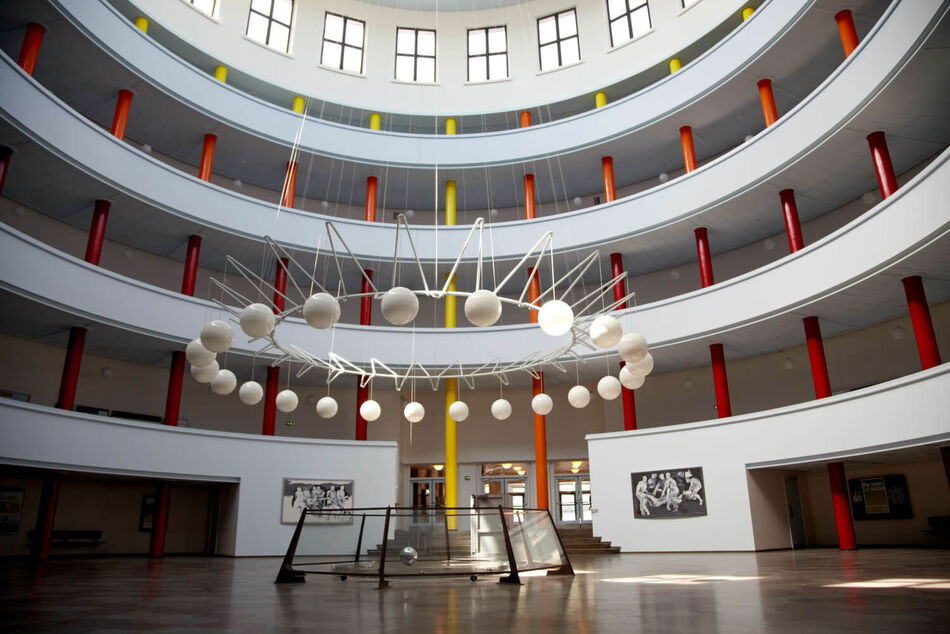
Here you will find some useful links and videos about student life and housing in Copenhagen, and the welcome programme for international students at Faculty of Science.
- Information about living in Copenhagen – plus practical information on housing, civil registration number, residence permit and more
- General information on student life and studying at University of Copenhagen
- Housing Foundation Copenhagen is an independent entity which assists international students and researchers at University of Copenhagen in finding accommodation. Visit Housing Foundation Copenhagen here
Video: Study Science at University of Copenhagen
Meet Elizabeth and Alex who study at the University of Copenhagen in Denmark. See what it is like to live and study in Denmark.
Video: SCIENCE Welcome Programme
The SCIENCE Welcome Programme is a great way for international students to be introduced to the Faculty of Science at the University of Copenhagen.
Contact student guidance
Questions about study choice and admission
Our student guidance are ready to assist you with answers to your questions about:
- application procedure and the digital application portal
- admission- and language requirements
- documentation
- study life
- career opportunities
- study choice or doubts
Did you not find what you were looking for?
You can find answers to questions most often asked by potential students in the FAQ. Read the FAQ
Questions about the digital application-portal?
Do you have questions about digital application? Check our user guide to the application portal.
In case of technical problems, please contact the IT-support by
- Mail: it-service@adm.ku.dk // Tel: +45 35 32 32 32
Location
- City Campus, Øster Voldgade 10, DK-1350 København.
